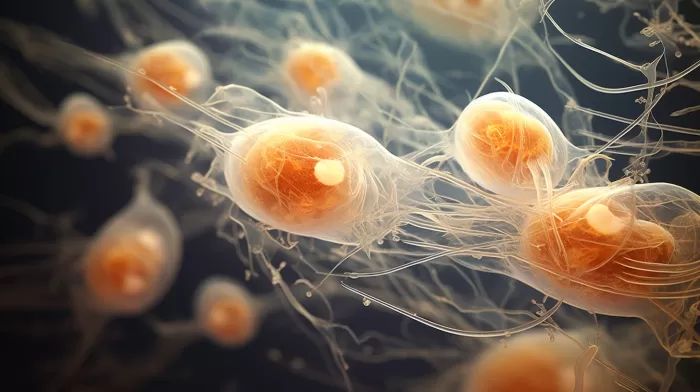Cats have been a beloved companion of humans for centuries, but did you know that a parasite they could leave in their kitty litter might pose a threat to your health? A study conducted on 45,000 Danish women discovered that those infected with a parasite, commonly known as Toxoplasma gondii (T. gondii), were more likely to experience mental health issues and attempt suicide than others. The parasite can easily enter your system through contact with cat feces when you change the litter, by eating undercooked meat, or even by consuming unwashed vegetables.
The author of the study and director of the Mood and Anxiety Program at the University of Maryland School of Medicine, Dr. Teodor T. Postolache, explains that while a direct correlation between T. gondii and suicide attempts cannot be established with certainty, the researchers did find a predictive association. This connection is worth more investigation, and the team plans to continue researching the potential link.
T. gondii is a widespread problem, with researchers estimating that up to two billion people worldwide have the parasite living within their brains. But first, let’s briefly discuss what T. gondii is and how it can affect you.
Toxoplasma gondii is a single-celled parasite that reproduces in the intestines of cats, following which it forms oocysts, or parasite eggs. These eggs are passed out through cat feces and can survive for months in the environment if they don’t find a new host. When humans come into contact with these eggs, accidentally ingesting them, the parasites enter the body and spread until they finally make their way up to the brain.
While most people might be unaware of T. gondii’s presence in their body or may only experience mild flu-like symptoms, there can be severe consequences in some cases. Pregnant women are especially at risk, as they can pass the infection on to their unborn child, leading to potential brain damage or even stillbirth. People with weakened immune systems, such as those undergoing chemotherapy or living with HIV, are also at a higher risk of developing severe side effects from the T. gondii infection.
Aside from physical health issues, research shows that T. gondii can also impact mental health. Several studies suggest that the parasite alters the behavior of infected rodents, leading them to take bolder risks, making them more likely to be eaten by cats. This behavior modification allows the parasite to complete its life cycle since it needs to return to a cat’s intestine to reproduce. There’s a possibility that the parasite might have similar effects on humans, increasing risk-taking behavior, which could be a contributing factor to mental health problems and suicide attempts.
While it might sound shocking and disturbing, there might be some ways to prevent infection:
- Practice basic hygiene: Wash your hands thoroughly after handling cat litter or after coming into contact with soil or sand, as the parasites could be present in these environments. Also, ensure that you clean any surfaces or objects that might have come in contact with cat feces.
-
Cook meat properly: Undercooked meat can harbor T. gondii parasites, so always make sure to cook meat at the correct temperature and for the appropriate duration. This is especially crucial for pregnant women and those with weakened immune systems.
-
Wash fruits and vegetables: Unwashed fruits and vegetables can carry the T. gondii parasite on their surfaces. Always wash them thoroughly before consuming to reduce the risk of infection.
-
Keep your cat indoors: By doing this, you lower the chance of your cat coming into contact with infected rodents or birds and, in turn, passing the infection on to you.
-
Use gloves and a mask: When changing kitty litter, it might be best to wear gloves and a mask to reduce your chances of accidentally ingesting the parasites.
Keep in mind that, in most cases, the T. gondii infection does not lead to severe health complications. Nonetheless, it’s essential to be aware of the potential risks and take steps to minimize your exposure to this parasite. By following the preventive measures mentioned above, you can enjoy your time with your feline friend without causing harm to your health.



